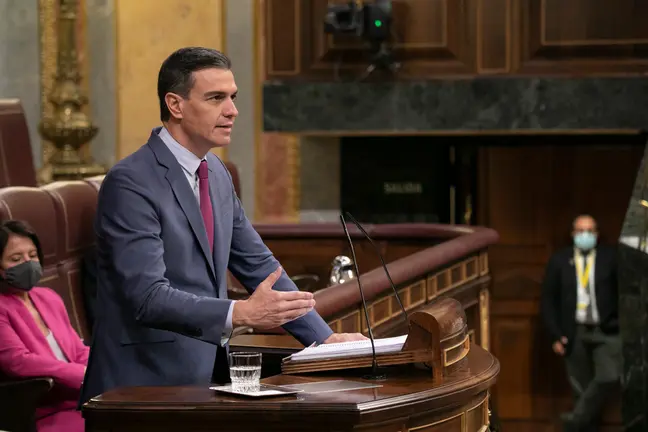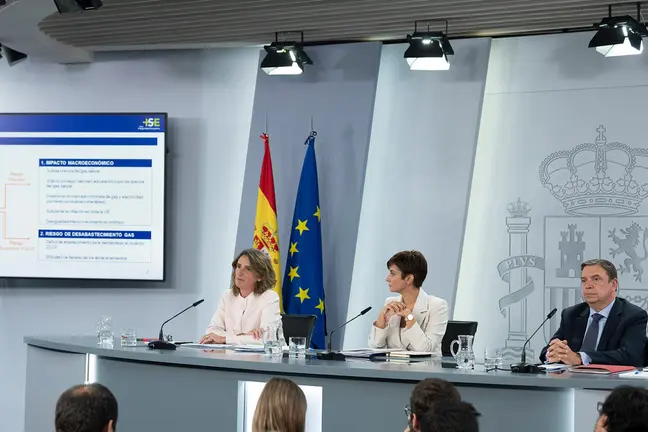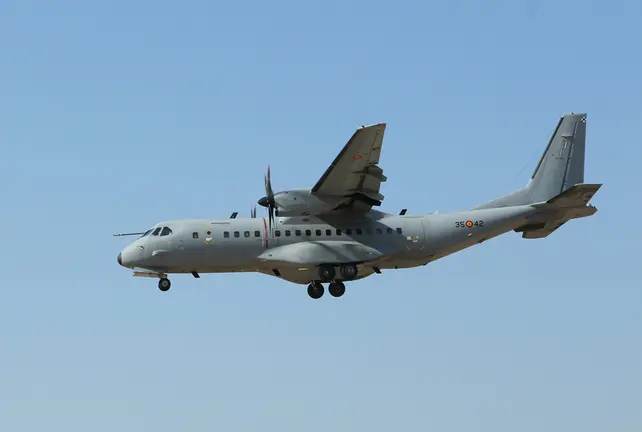The Prime Minister of Spain, Pedro Sánchez, and his Finnish counterpart Sanna Marin (social democrat) held a meeting this Wednesday at the Moncloa Palace in Madrid, on Marin's first official trip to Spain.
In addition to bilateral relations, both heads of government took advantage of the meeting to go over "issues on the intense European and international agenda." One of those hot topics is the situation in Ukraine, which has become the new battlefield between Russia and NATO.
According to a statement by the Spanish government, Sanchez and Marin agreed that "it is time for diplomacy" to address the conflict in the former Soviet republic. However, in a joint press conference after the meeting, the Prime Minister of Spain - a NATO member country - was much more explicit, warning Russia that it would face "massive and serious economic consequences" if it launched any attack on Ukraine.
"It's important to convey the message to Russia that any case of military intervention would have massive and serious consequences for its economy from EU sanctions," Sanchez said.
For her part, the Finnish Prime Minister reiterated that her country, which shares a 1,300 km border with Russia and a common past of war and mistrust, has no immediate plans to join NATO, but also stressed that Russia has no veto on such a decision. With this statement, she rejected the Russian demand for "guarantees" that NATO would not continue to expand eastward towards its border.
"We have the possibility of applying (to join the Alliance) in the future and it's very important that we keep this possibility open to ourselves. Nobody can say to us what to do. It's our own decision," Marin emphasized.
The issue of Finland's autonomy to join NATO has become a source of pride in the neutral Nordic country, which perceives the Russian demand as an attempt to limit its sovereignty.
According to a statement issued by the Spanish government, Sanchez and Marin also discussed the next NATO summit that Spain will host on 29-30 June. Finland, although not a member of NATO, has been part of the group of partners of the Alliance since 2014.
Spain and Finland are also the outer limit of the European Union, something that "makes us better understand the complexity of neighborhood relations and reaffirms our European conviction," Sanchez pointed out.
Climate change
On the bilateral level, the Spanish government described the current state of relations between the two countries as "good." Both leaders agreed to intensify collaboration on digitalization, within the framework of the recovery plans promoted by their countries.
They also confirmed that regarding policies to address climate change, Spain and Finland "share the urgency of carrying out the green transition, as a collective objective of the EU and as a national need."
Regarding the digital transition, Sánchez highlighted the importance of taking into account the demographic challenge of large areas of national territory and the island reality, two characteristics that Spain and Finland also share.
In this sense, Sánchez and Marin agreed to cooperate on digitalization issues to "transform our economies with a reformist spirit to which we are fully committed."
Bilateral trade
Trade relations between Spain and Finland are mainly industrial, especially in semi-manufactured products, machinery and intermediate goods. Although there are few Spanish companies in Finland, a group of them is currently collaborating to develop the country's wind sector with the installation of last-generation wind turbines.
Some of the areas in which both countries are open to deepening their relations is in collaboration between start-ups, health and microelectronics.










